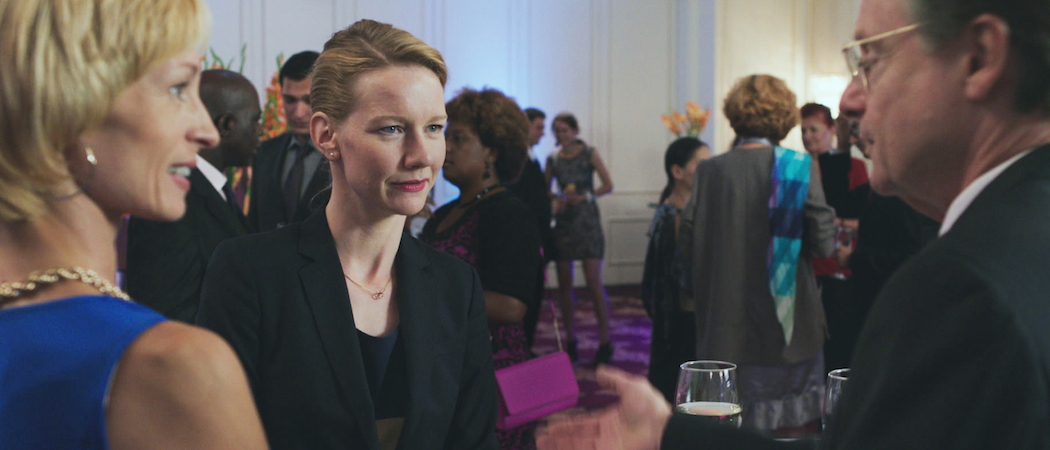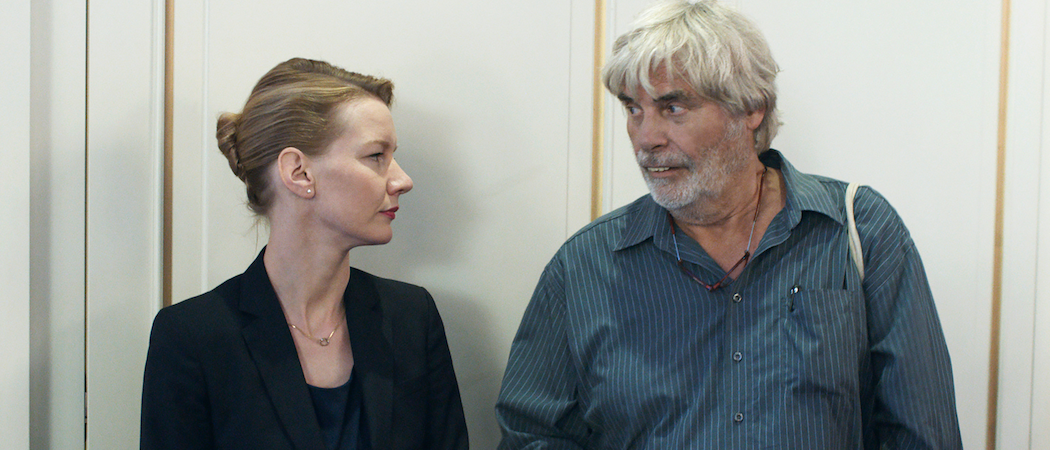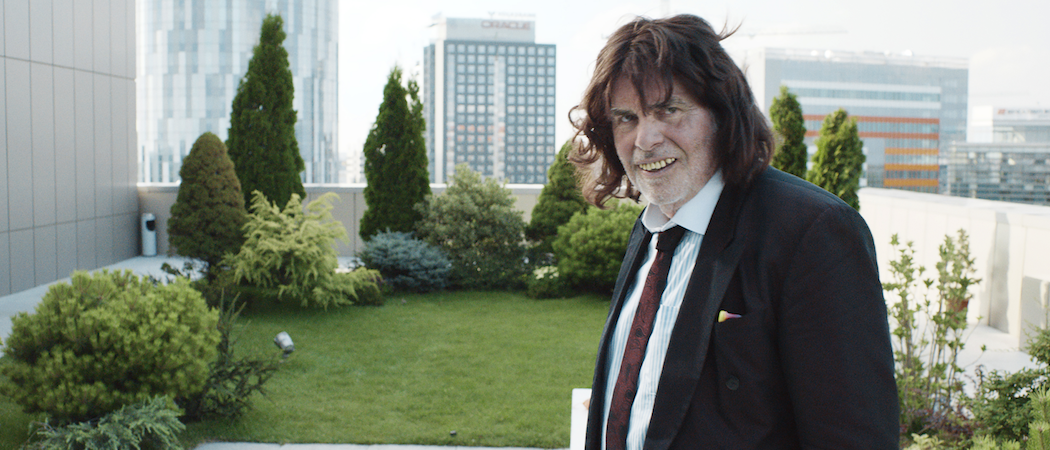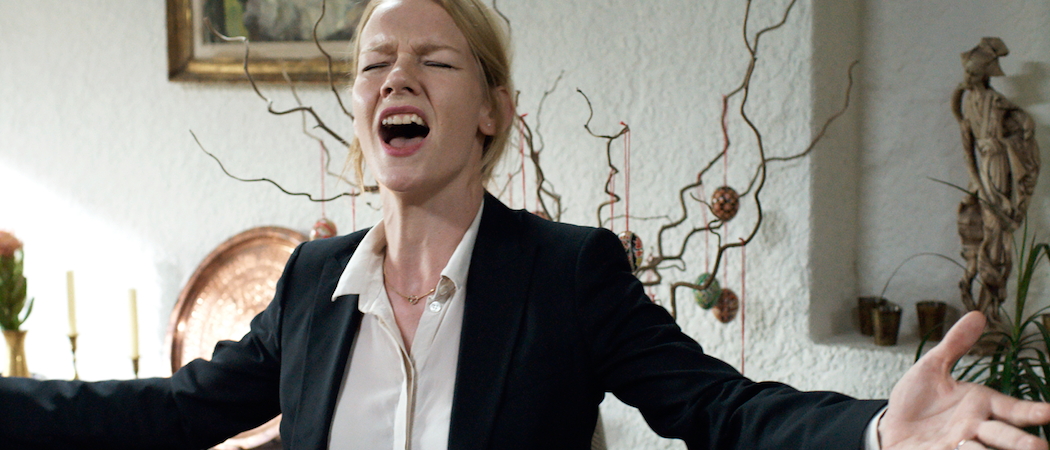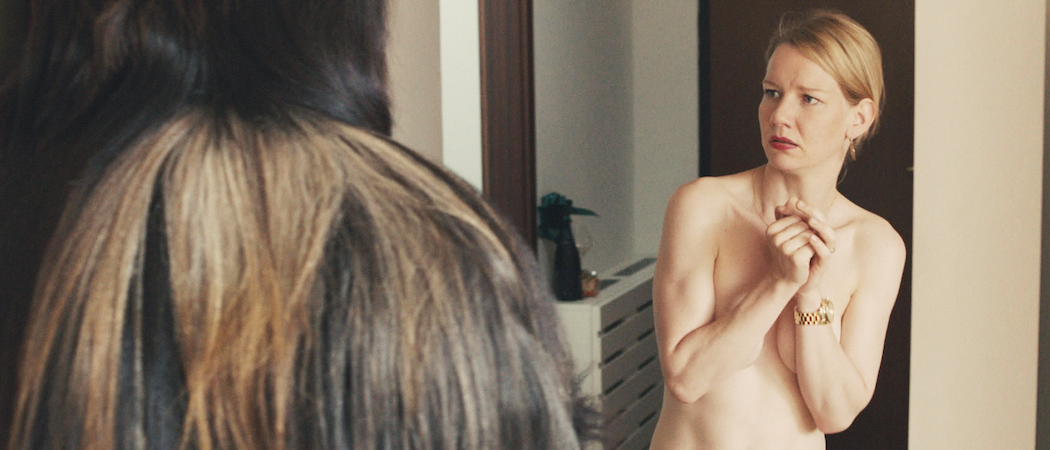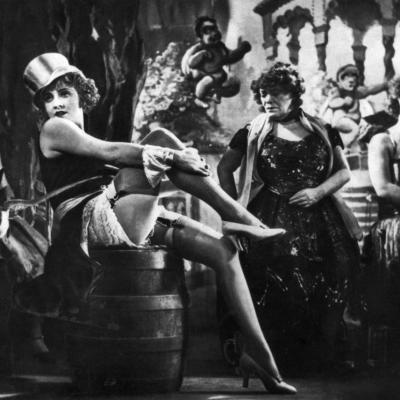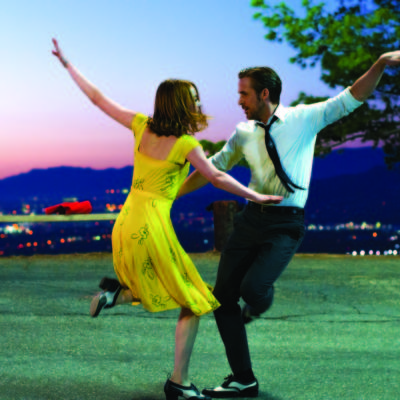Hype can often be a film's undoing. After great buildup, backlash follows, and the internationally-acclaimed-to-the-point-of-hyperbole Toni Erdmann is no exception. Thankfully, however, the German-Austrian comedy-drama is more than deserving of the reputation it has collected since hitting international theatres last year. Now, it finally makes its Australian theatrical debut as it vies for the Best Foreign Language Film Oscar at this month's Academy Awards.
The titular character of Toni Erdmann is the alter ego of Winfried Conradi, a divorced former music teacher who has his distant mother and his old, blind dog for comfort. Winfried takes comfort in humour, always trying to make people laugh and not giving up when it never seems to work. The one person whose approval he longs for most is his daughter Ines, who works for a major consulting firm currently based in Bucharest, Romania. Winfried makes a spontaneous visit to her temporary home, and much to his daughter's chagrin the ridiculous Toni Erdmann is along for the ride.
While the film may be a striking portrait of cosmopolitan Europe, its truths are universal and relatable. It takes characters that could have been nothing more than hollow archetypes - the workaholic career woman, the ageing trickster - and invests them with so much life and so much honesty that it's very hard not to be moved by them. The father-daughter relationship at its centre is not drawn from belaboured flashback nostalgia, but from real, present, and believable interactions that create a story that is utterly relatable even as it rests on laugh-out-loud absurdity.
The humour is awkward, and in its sometimes austere presentation the film resembles mockumentary television shows like The Office. It's reluctant to turn away from embarrassment and tension. Unlike said television shows, though, the decidedly un-cinematic Toni Erdmann never feels self-consciously constructed or emotionally manipulative. Just like in real life, humour and intense sadness exist in the same scene, bleeding into one another. Hilarious discomfort can transform into moments of almost voyeuristic intimacy in an imperceptible moment.
Even at its most absurd, Toni Erdmann still feels real, which is partly because writer-director Maren Ade's screenplay flows so naturally and gives itself so much room to develop characters organically over the film's nearly three-hour runtime, but also because the cast rise to the challenge with aplomb. Sandra Hüller's turn as Ines is a performance for the ages, plumbing with measured stoicism the kind of the depths of emotion that the most scenery-chewing performances can't. Austrian film veteran Peter Simonischek is the perfect foil for her, his social clumsiness possessing the sweetness and earnestness that it seems only fathers possess.
Toni Erdmann leads the viewer through a largely plotless procession of bureaucratic business functions, high pressure meetings, nights out, days in, chance encounters, a brilliant vocal rendition of a Whitney Houston classic and a very bizarre catered birthday brunch, but the audience never feels lost. Throughout the whole movie there is a clear thread that communicates a very simple message about living life in the moment, and despite the simplicity of that message, the film never feels schmaltzy or falls back on obvious platitudes.
The most affecting moments of Toni Erdmann are silent, or transmitted in words not spoken. This is filmmaking at its finest, reflecting and refracting the mundanities of life into something whimsical and strange and very very special. It is a film devoid of pretence or artifice, a concrete slice of life that will stick in your memory while other, less magnificent films dissolve into forgetting.
Toni Erdmann opens in Australian cinemas on Thursday February 9th.
